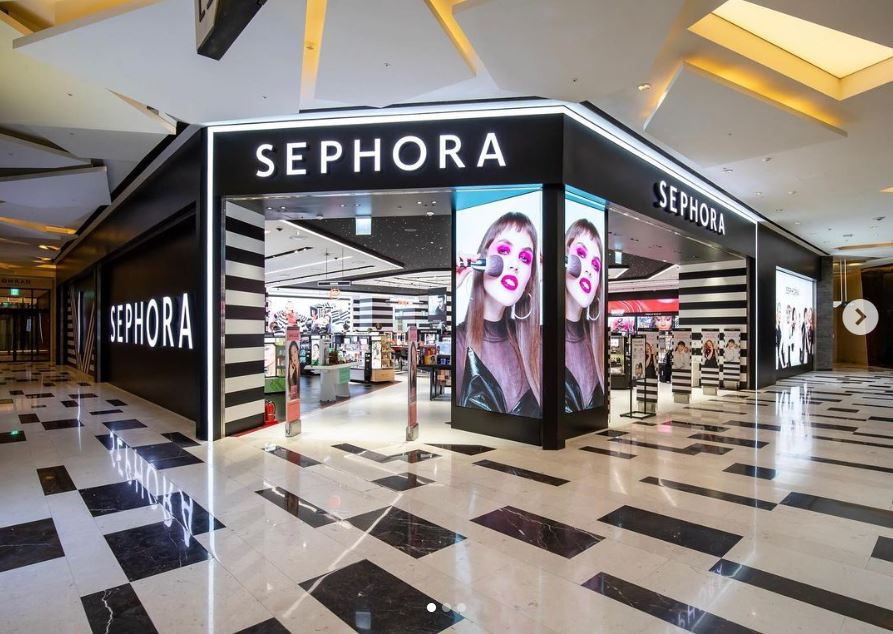
French cosmetics retailer Sephora, owned by LVMH Group, on Tuesday declared its withdrawal from the Korean market, following years of financial losses.
"With heavy hearts, we have decided to cease operations in Korea. From May 6, we will gradually wind down our presence across online platforms, mobile applications and physical stores, ultimately withdrawing completely from the market," a social media post by Sephora Korea announced Tuesday.
Sephora said that it will fulfill pending orders within six days from the specified date and maintain customer service operations until mid August. The membership-based Beauty Pass points service is to expire on May 6.
Despite the ambitious flagship opening of its first store at the Parnas Mall in Seoul's posh Gangnam neighborhood in October 2019, attracting long lines on its first day, Sephora's presence in Korea lasted less than five years.
First, the pandemic severely affected operations in Korea, rendering the strategy of experiential stores ineffective.
Having originally planned to expand to 14 stores by 2022, Sephora Korea faced escalating operating losses, increasing from 12.4 billion won ($9.2 million) in 2020 to 17.6 billion won in 2022.
While Sephora ranks as one of the top three brands under LVMH in terms of global sales, operating over 3,000 stores across 35 countries, it failed to surpass the dominance of CJ Olive Young, the beauty retail unit of CJ Group that commands almost 90 percent of market share here.
Industry experts view that Korea’s cosmetics retail sector poses significant challenges for competitors, due to consumer behavior patterns that deeply rely on established retail brand loyalty.
"Over the decade, the popularity of cosmetics products among Korean consumers has led to a situation where the choice is not solely based on the product brands themselves, but more so on the reputation of the retail store," said Lee Hong-joo, a professor of consumer economics at Sookmyung Women's University. Lee analyzed that Olive Young's familiarity with consumers creates a habitual tendency for them to revisit and purchase preferred brands, offering convenience and efficiency over experimenting with new stores.
Sephora's concept of an experiential store is not groundbreaking either, considering Olive Young already has a well-established infrastructure for customers to sample various brands in-store, Lee added.
Moreover, Olive Young has shown the capability to curate its own list of bestselling cosmetics, further solidifying its position in the market.
Sephora's exit from the market follows a trend of closures among other beauty retailers over the last few years.
GS Retail's Lalavla ceased operations in November 2022, while Lotte Shopping's LOHB's downsized significantly, maintaining only 10 shop-within-shop outlets located at Lotte Mart stores.
Similarly, Boots, the UK's leading health and beauty brand introduced by Shinsegae Group, closed its doors in Korea within five years. Shinsegae's own Chicor remains one of the few surviving beauty retailers, with approximately 20 outlets here.
Meanwhile, CJ Olive Young's performance continues to strengthen.
Anticipated annual sales appear set to surge by 40 percent year-on-year to 3.9 trillion won for 2023, while corporate value quadrupled over three years to encompass 1,339 stores. Olive Young achieved an estimated operating margin of some 10.7 percent last year, marking its highest ever.



















